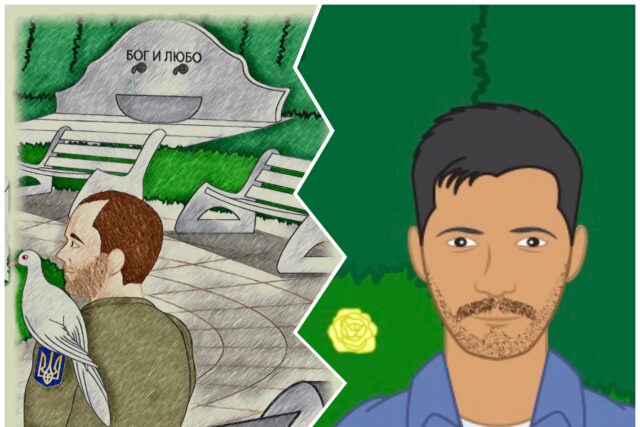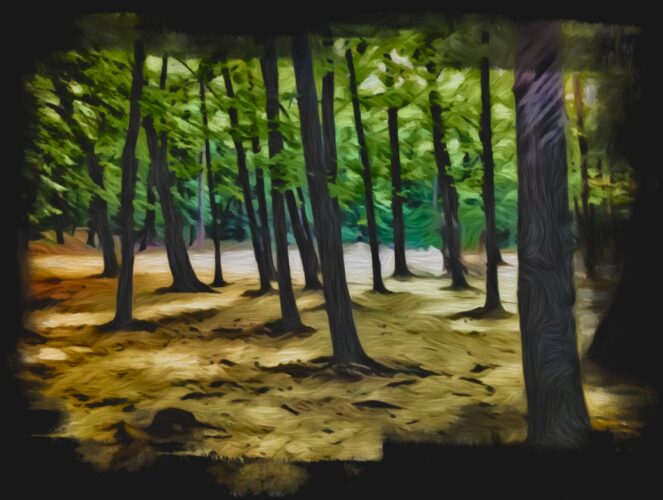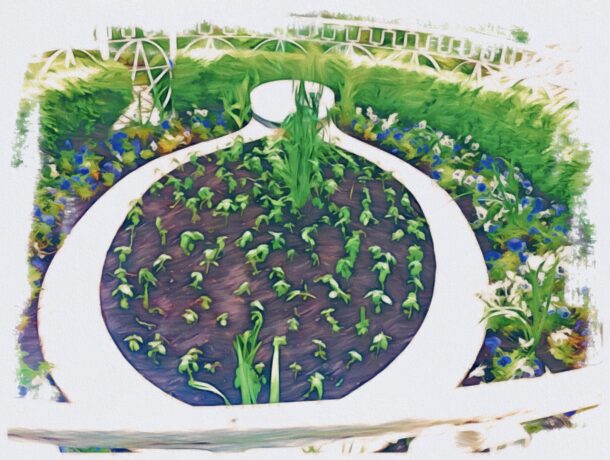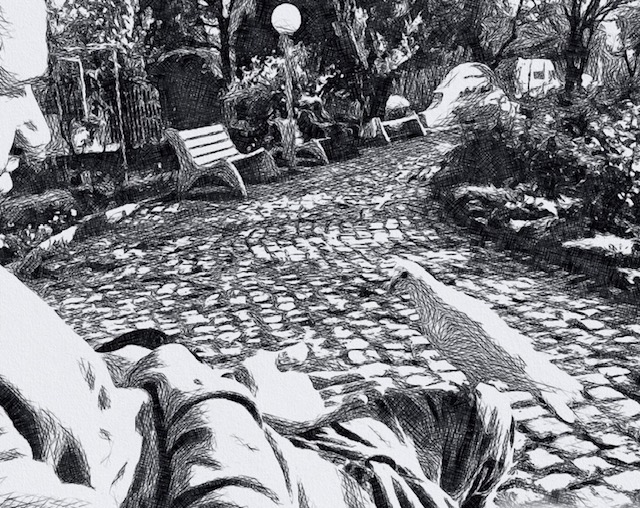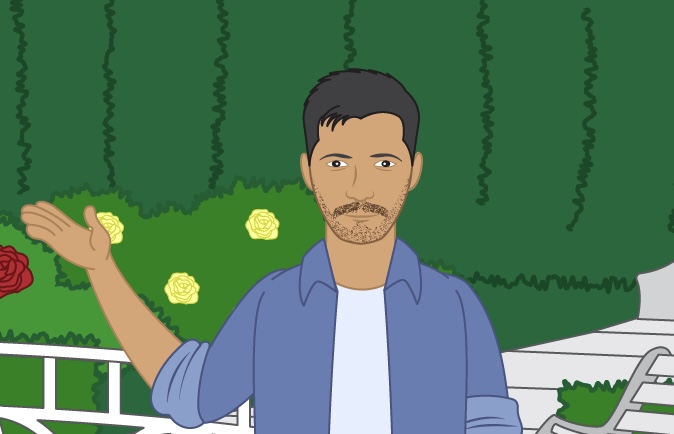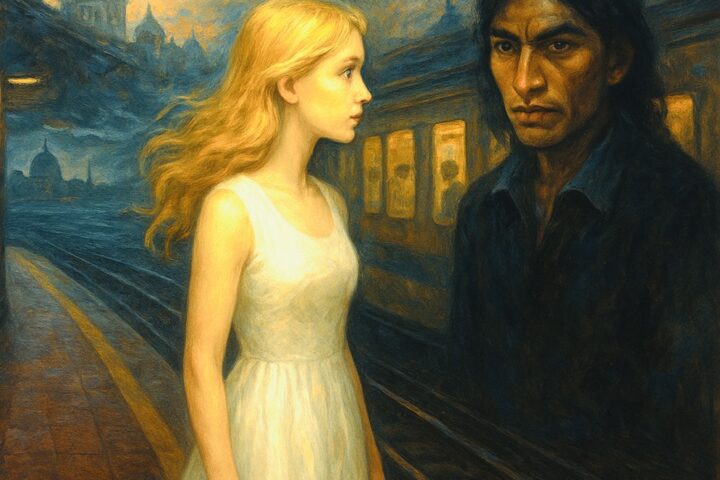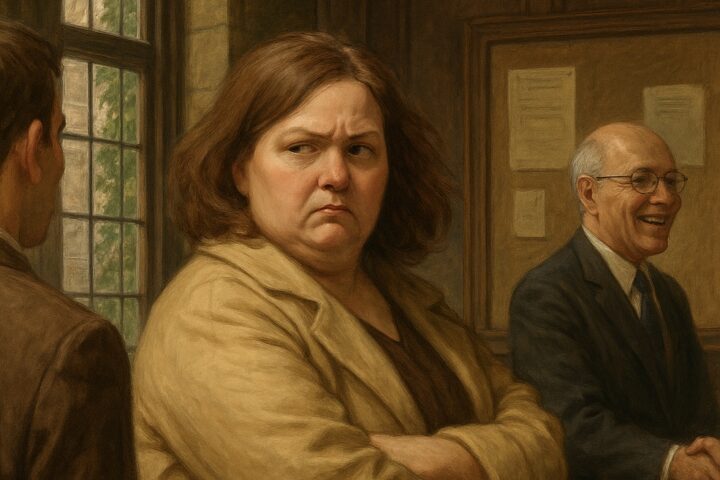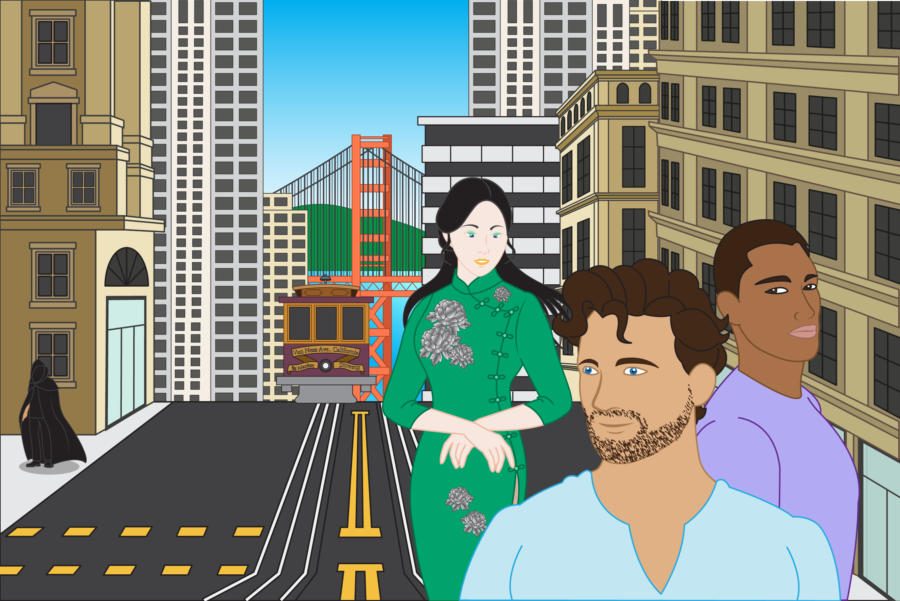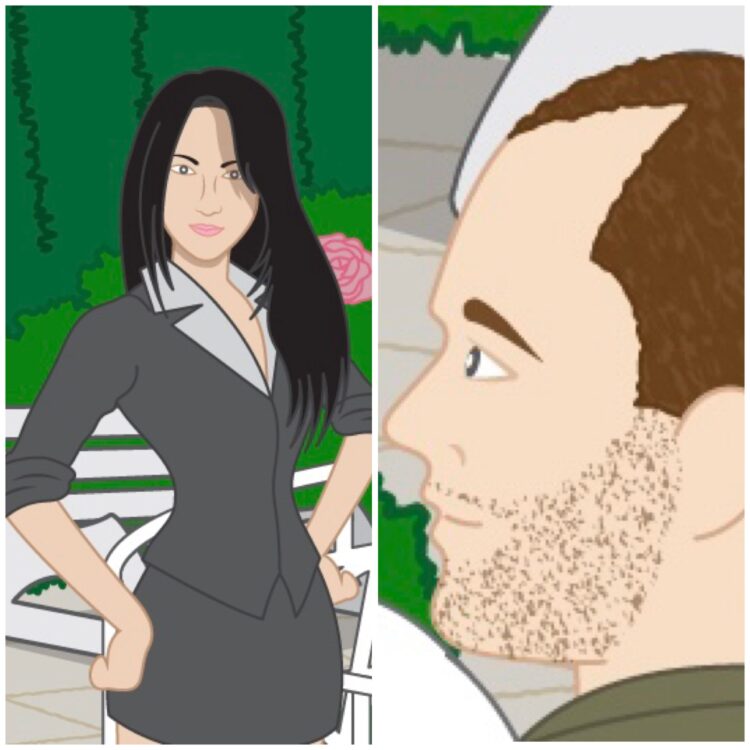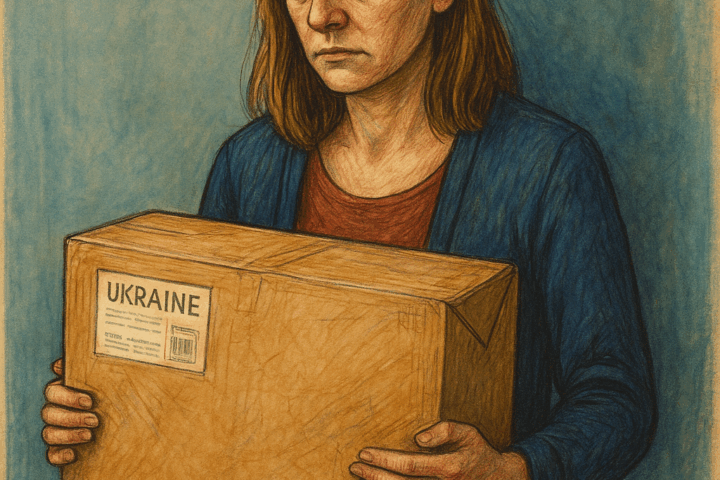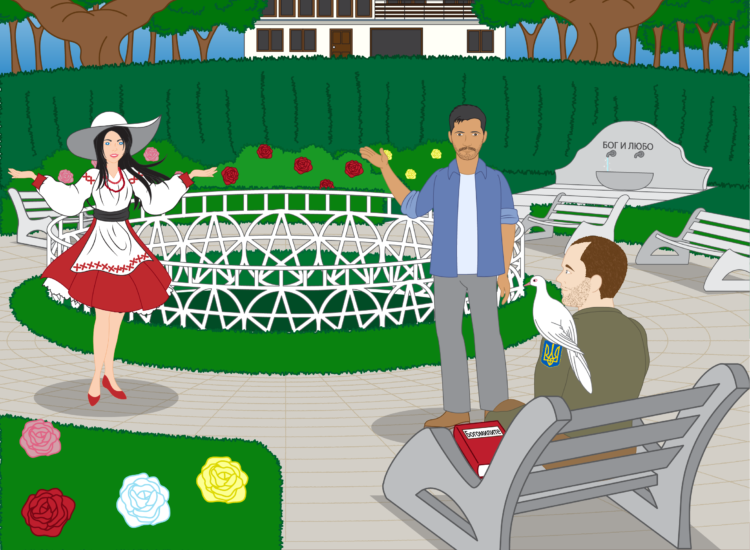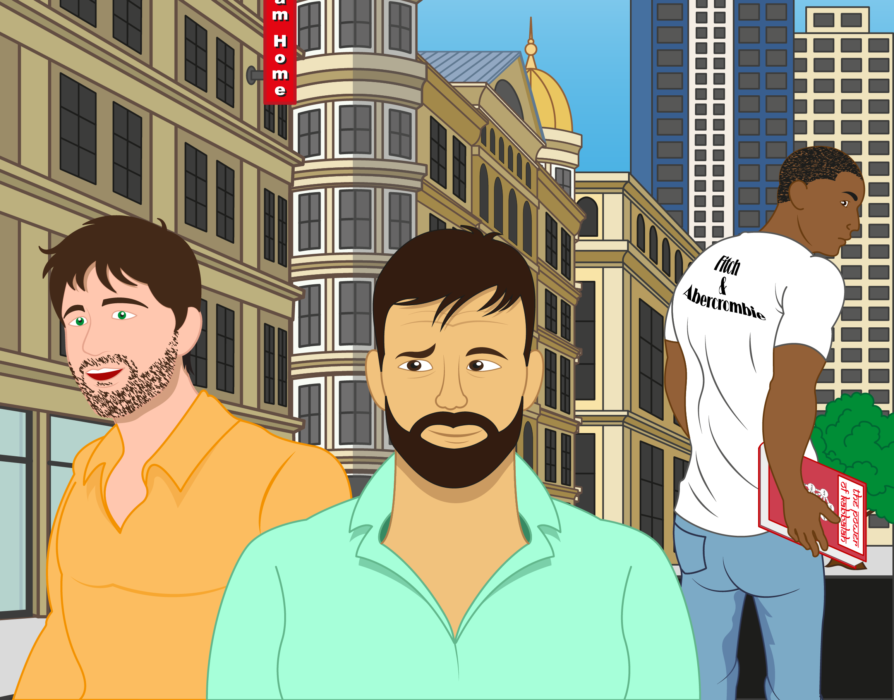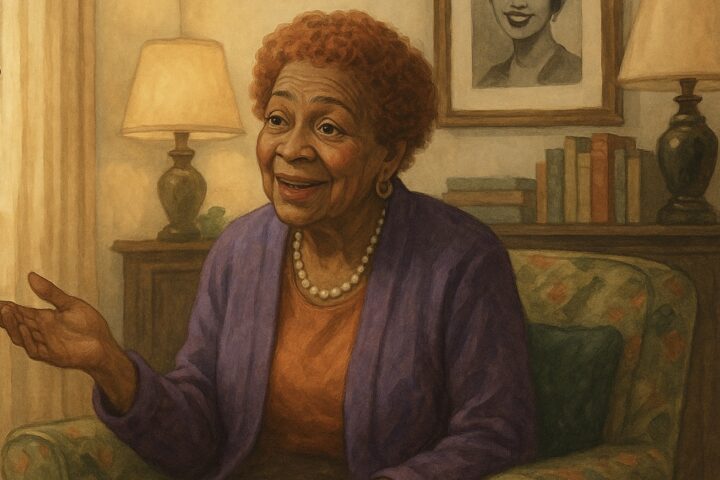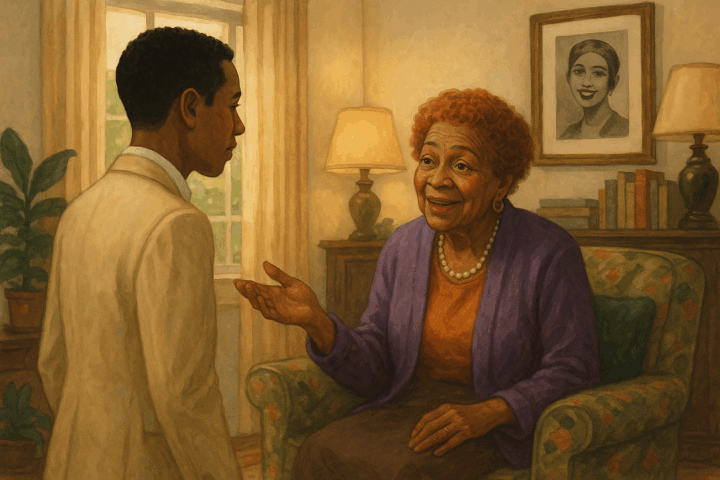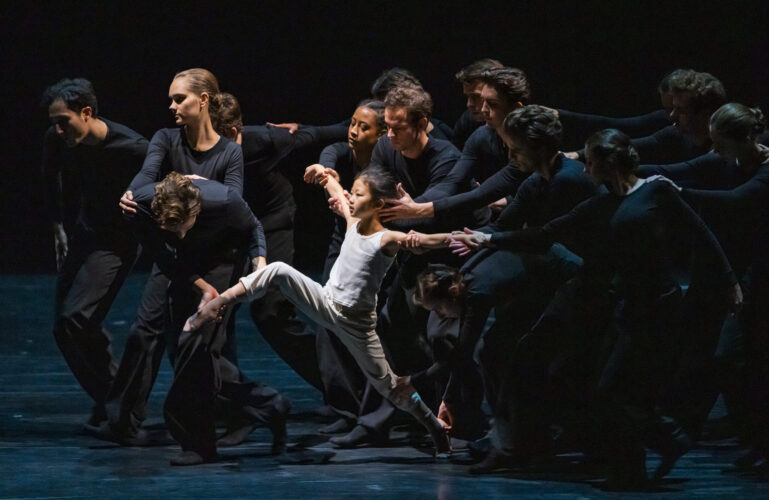Sofia, Bulgaria
The Land of the Ancestors
After a thousand kilometers on the road, they finally stepped out of the van. Mountains rose all around the tranquil city, standing like silent guardians. It was nothing like the restless swirl of Odessa; Odessa, that Mediterranean soul in Slavic skin. Sofia was different. Softer. Slower. A land steeped in memory. The land of their ancestors.Why had they ever left the Balkans? Was it truly worth trading the Ottoman yoke for Russian imperialism? Perhaps not. But none of that mattered now. Because thanks to them, his dream of a better world might yet find its place in the sun.
Taras, where are you staying?” Stella asked.
Taras blinked. His brain stalled like an old car in winter.
“Wait… isn’t that part of the deal?”
“Nope. The five thousand covers paperwork, lightning-speed processing, and two round-trip bus tickets with questionable legroom. That’s it. Stefan didn’t fill you in?”
“Ugh… I think I forgot to ask. Classic me. Damn.”
Stella smirked.
“Well, lucky for you, I’ve got a room at the Kempinski. Double bed. You can crash with me if you’re desperate and don’t snore like a tractor.”
Taras turned a lovely shade of tomato.
“I… I mean, I don’t want to invade your space or anything…”
“Taras, if I didn’t want you there, I’d have said, ‘Good luck sleeping under a bench.’ You’re fine.”
At the hotel, a warm smile welcomed them at the front desk. Stella leaned toward the young brunette receptionist, explaining that a friend would be joining her and asking if there might be a more spacious room available. After a moment of typing, the woman looked up with a nod.
“I’ll upgrade you, free of charge,” she said, in a tone that suggested she was bestowing a great cosmic blessing. “A gift from the hotel.”
They were handed the key to a suite on the sixteenth floor. Two beds. A wide window that stretched across the skyline. A view of a city humming gently beneath the evening light.
To mark their meeting, Stella pulled a chilled bottle of Veuve Clicquot from the minibar. She filled two glasses with a celebratory ease. Taras found himself quietly enchanted by her exuberance. They clinked glasses. They laughed. For the first time in a long time, hope didn’t feel like a foolish thing.
“Taras, have you ever heard of the White Brotherhood?” she asked.
“Is that… a supremacist group?” he replied, alarmed and already regretting his life choices.
Stella burst into laughter.
“No, not at all. Though I see how the name could be misleading. On the contrary — it’s a spiritual movement, one that began here. Very Bulgarian. Very avant-garde for its time.” “It’s white as in purity. Divine light. Higher frequencies. Not ‘suburban barbeque with tiki torches.’ Totally different vibe.”
“Ah. So, no mandatory robes then?”
“Only if you’re really into linen,” she winked.
Taras squinted at her, partly suspicious, partly enchanted.
“Are you a member?”
“No. But Bulgaria has always been a place of spiritual intensity. Think of it as Europe’s slightly feral third eye. The Balkans gave rise to the Bogomils, the ancestors of the Cathars — the ones the Church later slaughtered. The Brotherhood doesn’t ask for conversion or commitment. It’s open. Free. Universal. I was thinking… maybe we go to the wood at sunrise. Some members will be there, dancing.”
“And you want to go dance with them in the woods at dawn?”
“Obviously.”
“I don’t know,” Taras said slowly. “I’m still a little sceptical about all that.”
“Not too sceptical,” she teased, “or you wouldn’t be up here with me, drinking €100 minibar champagne like it’s tap water.”
“Touché. What’s in it for me?”
“Strength,” she said. “Stillness. Acceptance. Joy.”
Taras watched her, her eyes gleaming with mischief and something more. He smiled.
“You’re really something else, my dear Stella.”
“I know,” she said, her voice soft. “Just like you, my dear Taras.”
Thursday, 21st August 2013
They rise at six in the morning and take the metro from the “European Union” station. The city is still hushed, caught between darkness and day. Their destination is Borisova Gradina—Boris’s Garden—Sofia’s oldest park, named in honor of King Boris III of Bulgaria. There, they find a gathering of some thirty people. Quiet greetings are exchanged, smiles passed around like shared secrets.
Taras observes them closely.
“Bulgarians seem so different from other Slavs,” he muses. “Maybe it’s the Ottoman seasoning—spiced up over centuries. Meanwhile, Russians, Ukrainians, Belarusians… they’re like frozen dumplings: solid, stoic, and best served with a shot of vodka.”
One of the Bulgarians, speaking in halting Russian, begins to explain the dance steps. And then, it begins. The group moves—first forming a pentagram, then a circle. The choreography is quiet and mesmerizing. Overhead, the sun begins its slow climb above the tree line, gilding the forest and brushing Taras’s face with warmth.
A strange lightness stirs in him, something unfamiliar, lifting from within. He feels unburdened, unexpectedly joyful—though he couldn’t say why. The friendly faces he passes as they move together in rhythm calm him. For the first time in a long while, he feels accepted. Truly accepted.
Stella catches his eye and throws him a playful wink as she glides past. Some dancers wear flowing white from head to toe, but most are dressed casually in jeans and sweaters. After half an hour, the dance ends.
But Taras feels it before he sees it—a gaze. He turns, just slightly, and notices a man watching him. He appears to be in his forties, shorter than Taras, with deep black eyes, sun-browned skin, and a fine moustache. He isn’t classically handsome, but there’s something arresting about him. An effortless magnetism. A quiet, smouldering confidence. He smiles.
Taras hesitates. Then glances at Stella.
She grins, “What’s this? Playing the shy one?”
He turns back toward the stranger and approaches.
“Do you speak Russian?”
“Привет! Only when I’m trying to impress mysterious strangers at sunrise.”
“Do you come to these sunrise dances often?”
“Only when my alarm clock loses a bet.”
“This is my first time.”
“Well, lucky you—now you’ve met the unofficial dance floor tour guide.
A pause. Words hover between them.
“Would you like to join the group for breakfast?”
“Let me check with my friend—see if we have time.”
Their appointment at the Ministry of the Interior isn’t until three. They agree to go. A short while later, the trio walks to a nearby villa in Sofia’s Yzgreva district—an elegant chalet-style home nestled in greenery, belonging to the spiritual association that hosts the dance.
Not far from the villa lies a quiet garden, where the great mystic Peter Deunov rests. Deunov had been a pacifist, a vegetarian, a man of light. They say the Soviets later built their towering, concrete embassy atop the nearby hill—to stifle the positive vibrations of the Bulgarian sage. He died on December 27, 1944.
***
On the villa’s shaded terrace, Taras joins Atanas—a Romani man, a man unlike any he’s ever met. Warm, open, easy with laughter. There’s a gentle charm about him. And almost instantly, a spark of connection flares between the two. Atanas, too, seems surprised—like he’s finally met someone who sees him.
Stella returns, balancing three little pastries like she’s delivering crown jewels. She settles in with a curious look.
“So… where’d you learn Russian?” she asks.
“In Moldova. My grandmother was Gagauz—tiny but fierce. She never really meshed with my grandfather’s family. After he passed, she retreated to a village south of Chișinău, probably to avoid further unsolicited opinions. For reasons still unknown to mankind, my parents sent me to live with her. Two years. No calls. No letters. Just cabbage soup and Russian TV.”
“Taras, your mom’s Moldovan too, right?”
“Yep. From Tiraspol. A Russo-Moldovan cocktail. Born in Bessarabia, raised in Transnistria. Like the Gagauz, Russian was her first language—aka the language of our ‘Big Brothers’,” he says, with the kind of irony you could slice with a butter knife.
“So, what brings you to Sofia?” Stella presses.
“Work. Wife and kids are in Vienna.”
“And you two?” he nods at Stella and Taras.
“I’m a consultant,” says Stella, with the confidence of someone who’s still figuring out what that actually means.
“I’m in trade,” says Taras, mysteriously.
“And why Bulgaria?” Atanas asks back.
“A European passport,” Stella shrugs.
“And the freedom of movement,” Taras adds, as if quoting an EU brochure.
“I love freedom,” Atanas chimes in, flashing a grin that lingers just a touch too long.
Stella excuses herself to greet a Bulgarian couple she’d met in Berlin—the ones who had told her about the White Brotherhood.
Alone now, Atanas leans in and whispers,
“If you truly want to experience freedom, meet me tomorrow at the Deunov Garden, Nikola Mirchev Street, 4 p.m.”
“Give me your number—it’ll be easier.”
“No phone. Just remember the time and place. It’s simpler this way. Once you’re in the garden, pick a bench. Wait for me there. Until tomorrow.”
Stella struts back in like she owns the sequel.
“Atanas already ghosted you?” she smirks.
“Not quite. He scheduled a sequel for tomorrow,” I reply.
“Ooooh, smooth operator!”
“You think?”
“He’s got that mysterious vibe. What’d he drop on you?”
“He says he wants to teach me freedom.”
“Oh boy. That’s either romantic or the start of a pyramid scheme.”
“What are you implying?”
“Just saying, Taras—when it comes to the Roma, it’s all passion and poof. Heart today, heartbreak tomorrow.”
“You’re impossible.”
“Live the drama, Taras. But maybe don’t sign up for the full season pass.”
***
At 1 p.m., they meet up with a small group led by Stefan in a drab little hotel downtown—an architectural leftover from the communist era, not far from the mosque where Bulgarian Turks and Pomaks gather to pray.
Stefan hands out printed scripts—short dialogues meant to be memorized. It’s like a community theater production, except instead of applause, you’re hoping for citizenship. Everyone gets one, except Stella and Ivan, who are in the final stage and now act like wise elders guiding the rest through the bureaucratic labyrinth.
“The questions will come in this order,” Stefan assures them.
Luckily for Taras, Bulgarian bears enough resemblance to Russian to feel familiar. Both share the Cyrillic alphabet, after all.
Two hours later, Taras recites his lines to a government clerk: a faux blonde with jet-black eyebrows. She checks boxes as he speaks, with the enthusiasm of someone grading elementary school math homework. The whole thing takes five minutes, including the awkward silence at the end.
She asks him where he’ll live once he gets his citizenship. He smiles, summoning all the enthusiasm he can legally express in front of a government official. “Sofia,” he replies.
Bulgaria, bleeding population since its entry into the EU, is trying to lure back descendants of its long-scattered diaspora—those from the former USSR and Yugoslavia. With a good Bulgarian name—Ivanov—and Stefan’s connections, his application is likely to move quickly. He’s asked to return in two days for his next appointment.
Just then, Stella bursts in like she just won Eurovision.
“I got it! My citizenship card! Tomorrow, I apply for my passport. I’m so happy! No more being a foreigner in Berlin—I’ll have the same rights as the Germans. It’s a dream come true!”
“I’m so happy for you, Stella,” Taras says. “I’m almost jealous.”
“Oh, my dear,” she replies, patting his arm like a grandmother consoling a child whose ice cream just fell. “Just be a little patient. Your time is coming.”
***
Friday, 22nd August 2013
Taras passed through a modest gate and stepped into Deunov’s garden—a quiet, circular haven peppered with blooming rosebushes. The stillness enveloped him at once, like a whispered lullaby to his restless spirit. He began to walk, slowly, deliberately, as if time itself had softened. A few scattered souls sat in silent meditation or wandered the paths, offering him gentle smiles or respectful nods.
At the center stood a small stone fountain, its base inscribed with simple yet profound words: “God is Love.” Beyond it, an iron circle of pentagrams enclosed the resting place of the spiritual master, now surrounded by flowers like silent witnesses to his enduring presence.
Taras found a bench bathed in sunlight and sat down, facing the warm light. He closed his eyes, letting the rays melt away the weight he carried. The peace here was tangible—thick and golden like honey. Minutes passed. Then, without warning, his consciousness drifted. Images swam before his closed eyes: unfamiliar landscapes, winding journeys, and the innocent laughter of two children. A dream? A vision? He couldn’t tell.
Then—a light pressure on his shoulder. He opened his eyes.
A dove had landed gently on him, perching on his left shoulder as though it belonged there. Taras raised his left hand, and the bird stepped gracefully onto his index finger. It looked at him intently and cooed, soft and melodic. The sunlight flared in his eyes, and through the brightness, a figure emerged.
“Beautiful place, isn’t it?”
Startled, Taras turned toward the voice. “Ah, Atanas… I didn’t recognize you.”
“It seems that bird has chosen you,” Atanas said with a slight grin.
Taras glanced at the dove, still calmly perched. “Strange, isn’t it? It just won’t leave.”
“May I sit?”
“Please.”
Atanas lowered himself onto the bench beside him. He looked around, breathing in the moment. “This place always soothes me,” he said quietly. “There’s an energy here—something that lifts me up. It makes me forget my flaws.”
“Flaws?” Taras chuckled. “Still chasing the dream of being the perfect man?”
Atanas gave a short laugh. “Aren’t we all?”
Taras looked out at the garden again, the light dancing in the petals of the roses. “It’s… beautiful. Almost otherworldly.”
“Yes,” Atanas said simply. “Magical.”
“I think I had some sort of mystical experience just now.”
“That wouldn’t surprise me.”
“I saw things… visions. But I couldn’t explain them if I tried.”
“Some truths aren’t meant for words,” Atanas murmured.
“Has it happened to you?”
“It has. That’s why I’m here. Why I’m sitting beside you.”
At that moment, the dove fluttered from Taras’s hand and settled softly on Atanas’s shoulder, as if passing some unseen torch.
“Do you know Sofia well?” Atanas asked.
“It’s only my second day here,” Taras replied.
“Then come. Let me be your guide.”
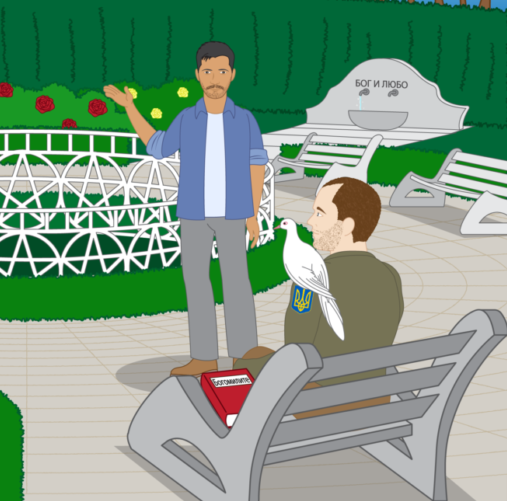 ©form-idea.com | Credit: Robinsong Collective & Stenly Graphics
©form-idea.com | Credit: Robinsong Collective & Stenly Graphics
As they stood, the dove took flight and glided toward the iron fence surrounding the tomb. It landed delicately on the gate, watching them. Just beside it, on a nearby bench, Taras noticed a worn book. He picked it up. The cover bore a title in Cyrillic: Богомилите—The Bogomils.
“Our long history,” Atanas said with a thoughtful tone.
Taras frowned slightly. “What do you mean?”
“They left a deep mark on this land. Perhaps you and I were once among them—Perfect Ones who loved each other in another life.”
Taras laughed, half amused, half intrigued. “What an idea! But tell me, who were they really? These Bogomils?”
“The ‘Perfects,’ as they were called, were men and women who had reached spiritual purity—through wisdom, vegetarianism, celibacy, and a rejection of violence. Dualists, they saw the material world as the domain of evil, the animal realm from which they sought release. For them, the ultimate goal was to attain the perfection of the spirit.”
“And what happened to them?”
“At first, the Byzantine Empire tolerated them. But when the Ottomans arrived, many converted to Islam—especially in Bosnia—as it offered a better future than living as subhuman. Their Western counterparts—the Cathars—weren’t so lucky. They were massacred in France, with the full blessing of the Holy Roman Catholic Church. Burned alive, tortured… Western history has not been kind to heretics.”
“I hate dogma,” Taras muttered. “Religious or political—it crushes the soul.”
Atanas smiled, not with joy, but with understanding. “Come,” he said gently. “Let me show you София.”
And together, they walked out of the circle, the dove watching silently from its perch, as if guarding an ancient secret.
They both climb into the BMW, its Austrian license plate gleaming under the fading sun, and head toward the city center. Sofia opens up before them like a well-worn book, its pages filled with stories of empire and resistance. The ornate National Ivan Vazov Theatre, proud and classical in its stance; the ancient, unassuming Rotunda of Saint George; the grand, five-naved Alexander Nevsky Cathedral, glowing in soft neo-Byzantine splendor; the Russian Church of Saint Nicholas, where the last Tsar, Nicholas II, is revered as both martyr and saint. They pass Battenberg Square, a quiet nod to Bulgaria’s vanished monarchy. All of it charms them, draws them in. Then they stroll along Vitosha Boulevard, the grand pedestrian artery of the city, pulsing with life.
“Sofia isn’t the most beautiful capital in Europe,” Atanas says, almost apologetically. “The English bombed it heavily during the Second World War. But still… there’s something here. The tree-lined streets. The parks. The atmosphere. The calm. The tolerance. It’s… pleasant.”
“Yes,” the other murmurs, his voice low. “I like it…”
A graffiti on a nearby wall interrupts them. “Being gay is not a disease.”
The words float in the air like a passive-aggressive ghost.
“Seems to say a lot about the place,” Taras remarks. “But is the country really tolerant?”
“In many ways, yeah. It’s one of the few Balkan nations that managed to hold on to its Turkish and Pomak minorities—more than ten percent of the population, officially. During the tail end of communism, while nationalism was setting the neighbors on fire, old man Zhivkov tried playing that card too. Didn’t stick. The Roma, though… we’re the underestimated subplot. They say we’re five percent. More like ten, depending on who’s counting and how sober they are.”
“So… no real recognition for the Roma?”
“Maybe not. But there’s joy. Freedom, too. We Roma don’t cling to land. If everyone thought like us, half the world’s issues would vanish—poof—like socks in a washing machine.”
He grins, a flash of mischief flickering in his dark eyes.
“And that graffiti?” the other asks.
“Ah,” he shrugs. “Bulgaria isn’t Russia. It’s not Poland either. But it’s definitely not Ibiza. There’s no real aggression in Sofia—more like passive tolerance with strong opinions. Let’s just say… being bisexual here is more palatable than being flamboyantly gay. Ottoman legacy, maybe. We blame everything on that—the Turks. Even corruption. Apparently, we got so good at dodging taxes under the empire that it became a national hobby.”
“Fascinating,” Taras murmurs.
“You care about LGBT rights?” Atanas teases, cocking an eyebrow with a grin sharp enough to slice watermelon.
Taras blushes like he just got caught Googling something embarrassing.
They continue walking. Soon, a towering monument looms—brutalist and grey, a tribute to the so-called “Stalinist liberation.” Rage flickers in Taras. Communism sickens him; he wants to shake it off like a disease. Atanas beside him—wild, unchained—seems to understand. He nods gently, wordlessly encouraging him to keep walking, to keep shedding the past.
They return to the car, parked near the solemn bulk of Sofia’s synagogue, and drive westward to the great park, which feels less like a park and more like an untouched forest. Packs of dogs, some almost wolf-like, slink silently among the trees. Solitary figures drift past like ghosts. None seem threatening. Atanas stops, tilts his face to the sky, and gazes up through the canopy of branches.
“Taras,” he says quietly, “what are we in all this vastness?”
Taras stares up, lost in the green. “Dust,” he replies.
“Then why chase possessions? Why follow dogmas? Why deny our desires?”
Atanas turns to him and gently takes his hands. They stand like that, palms pressed together in the stillness, the forest holding its breath. Taras feels his body lighten, as if gravity had loosened its grip. A strange sensation washes over him—a dream he’s half-remembering. A déjà vu so strong it bends time.
He opens his eyes. Atanas is watching him, eyes dark and luminous, moist with quiet joy. Something inside Taras breaks open. Without thinking, he pulls him close. Their bodies meet, melting into one another. Time stretches. When Atanas finally leans in and brushes his lips against his, Taras surrenders. He kisses him back, urgently, like he’s catching up on a thousand lifetimes of silence.
A joy overtakes them—wild, radiant, unspeakable. And then, like a boy possessed by freedom, Atanas takes off running. Taras follows, laughing, his heart pounding, the trees blurring around him. Suddenly, a flash—another image, another echo. Have I seen this before? Or lived it? The thought slows him. He stumbles to a stop, shaken, and turns to his companion.
Atanas steps closer, places an arm around his shoulders.
“Come,” he says softly. “Let me take you to dinner.”
***
The restaurant is alive with colour and heat—crowded, loud, fragrant. Plates of clay pass from hand to hand. Strings sing out over the chatter as Roma musicians play beneath hanging lamps. Taras leans in over the table.
“You haven’t answered my question,” he says.
Atanas smiles, his fingers trailing the stem of his glass.
“Your gaze,” he says, “is strangely familiar. I can’t explain it. Perhaps we belong to the same soul group.”
“Who knows? But what matters to me is this moment. You’re here. So am I. Let’s celebrate… how shall I say it? Let’s celebrate our reunion. Yes. That’s it—our reunion.”
Taras stares at him, heart thudding. That moustache, those coal-dark eyes, the crisp black hair. There’s something fiercely masculine about him that draws Taras in completely. He has always been clear—he likes men who are men, and women who are fully women. No in-betweens.
Atanas pours wine into their glasses, then orders a round of rakyia, Bulgaria’s sharp, burning fruit brandy. Plum. Grape. Cherry. It doesn’t matter. The liquor sets their blood alight. Taras forgets moderation, forgets his usual stomach pains. He drinks. He laughs. He lets himself go.
The music swells. Dancers rise. One by one, the crowd joins. Atanas stands and offers his hand. Taras hesitates—then takes it. They dance, spinning into the night. Taras lets the rhythm move through him. For the first time in a long time, he feels alive.
When the meal is done, Atanas pulls out a tidy bundle of €50 notes like he’s just stepped out of a spy film. He peels off two with the casual flair of someone who’s either very wealthy or very committed to the illusion. The waitress, smiling, takes the foreign bills without so much as a blink—either she’s seen it all, or she’s just glad not to deal with coins.
Outside, a Roma flower seller calls to them like he’s been waiting for just this moment.
“Roses for your ladies?”
“Yes,” Atanas replies with a grin. “Seven red ones. Red—for passion. And seven—because, supposedly, we live seven lives.”
“Romantic man!” the seller laughs. “She’ll be happy, that’s for sure.”
Atanas shoots a glance at Taras and adds with a wink, “She doesn’t know it yet.”
When they turn the corner, out of sight, he passes the bouquet to Taras without ceremony.
It’s a simple gesture, but something in it knocks the wind out of him. Taras swallows, his throat suddenly tight. It’s ridiculous how much this means.
“I’ll take you back to your hotel…” Atanas starts, voice casual.
Then, after a pause, “Or, you could come home with me.”
There’s a flicker in his eye—hope? Mischief? Something between.
Taras lets a smile bloom slowly.
“To your place.”
Saturday, 23rd August 2014
The morning light slanted through the hotel window, soft and golden, when Taras stepped into Stella’s room. There was a brightness to him, an energy that clung to his movements, as if he were still dancing with something unseen. He looked almost delirious with joy.
Stella, curled up on the sofa with a cup of coffee, raised an eyebrow and smirked.
“Taras,” she said, drawing out his name like a knowing question. “Judging by that dreamy look on your face, I’d say your night was… eventful.”
He laughed, a little breathless, and ran a hand through his hair. “Yeah. You could say that. Something happened. Something I can barely even explain.”
“Maybe you’re not supposed to explain it,” she said, setting her coffee down. “Some things just are.”
He hesitated by the door, holding a bouquet — Red roses, imperfect and charming. She tilted her head.
“Are those for me?”
“They are,” he replied, blushing.
“You’re an angel,” she said, touched. “Now come on — tell me everything. I’m dying to know.”
“I don’t know if I can,” he murmured, glancing away. “It feels… too big.”
“Taras,” she said, her voice low with amused insistence. “Don’t go shy on me now. I live in Berlin. Nothing shocks me.”
He laughed again, more freely this time. “Okay. You remember Atanas?”
“The mysterious Romani with the devilish grin? Of course I remember.”
“Well,” Taras began, then paused, as if trying to find the right words. “I think I’m falling headfirst into something wild with him. Like… mad love.”
She looked at him carefully, then smiled — not her usual teasing smile, but something softer. “Mad love?”
“I don’t even know how to describe it. A love untamed by reason, wild as fire. It’s like I’ve discovered a new frequency of being. I’ve never felt this alive, this connected — to him, to the world, to myself. Everything just… flows. The joy, the ease, even the silence between us. I feel like I’m flying and grounded all at once. I’ve never known anything like it. I’m intoxicated. Completely.”
Stella stood and crossed the room, placing a hand lightly on his shoulder. “I’m really, truly happy for you, Taras.”
He looked at her with grateful eyes, his voice barely above a whisper. “I think I’m finally learning what it means to let go.”
“Then don’t stop,” she said, giving his arm a squeeze. “Hold on to that. Let it carry you.”
She stepped back, suddenly practical again. “Now, come with me. You need food. We’re going to breakfast — and you’re telling me everything on the way.”
He smiled, wide and unguarded. “Deal.”
May 2014
Nine months have passed, yet the four days in Sofia linger in Taras’s memory with the density of a decade. Time, he has come to suspect, does not flow—it coils, folds, fractures. What he lived in those dusky, fire-lit evenings and electric nights in the Bulgarian capital defies the linear. That brief chapter carved itself deep into the bedrock of his being.
He hasn’t seen Atanas since. And yet, every month, without fail, Atanas calls. Always from a different number. Always for at least an hour. A message arrives the night before —nothing more than a time and a promise. The voice follows. And never, under any circumstance, does Atanas allow the past to surface. It has been buried. By request. By necessity. No questions.
Then, at last, the letter arrives: Taras is summoned for his naturalization — Thursday, the 22nd of May. Atanas tells him to make no plans. He’ll meet him at the airport. A ticket has been bought—through Istanbul this time — to spare him the slow agony of buses and border posts and the ghosts of last time.
Since his return to Odessa, the air has thickened. The city has lost its shimmer. The laughter is less frequent, the silences longer. Something vital has receded. In November 2013, the rupture began—President Yanukovych, swayed by the Kremlin’s cold breath, refused at the eleventh hour to sign the accord with the European Union. With one decision, he shattered the horizon for a generation of Ukrainians who had dared to dream of another country — cleaner, freer, more open. Like Poland. Like possibility itself.
But their western dreams were not NATO dreams. No — most bore no hatred toward Russia. Westernization meant something else entirely: an end to rot, to the bureaucracy that devours, to borders that suffocate. It meant light.
Kyiv burned with that desire. The Revolution of Dignity followed, and with it, a changing of the guard. In Odessa, some called it a coup — words that made Taras’s skin prickle with rage. On May 2, violence nearly tipped the city into the abyss. In Taras’s mind, there was no ambiguity: Putin — that bastard — wanted Odessa, the Pearl of the Black Sea, to fall. The tension in the city, Russian-speaking and deeply un-Russian, thickened like smoke. But Moscow, in its blindness, mistook language for loyalty. The streets spoke Russian, yes. But their hearts did not beat for the Tsar.
Business, too, had curdled. Zelimkhan, his boss, was struggling to move metals out of the Donbas, now a battlefield. Kremlin-paid mercenaries roamed the region like wolves, half-visible in the mist. Revenues shrank. And since marrying his young bride, Zelimkhan had grown tighter with his wallet. Their partnership was now a cold, metallic thing: strictly transactional.
In April, Taras was sent to Crimea, tasked with reaching out to Chechen traders. The war had no name yet, but it already had consequences. And oddly, the machinery of travel still clanked on. Aeroflot jets glided from Odessa to Moscow, from Kyiv to St. Petersburg. Trains still traced their routes across borders no longer honoured. Buses came and went like nothing had changed. But everything had. The journey marked him. Russian mercenaries, drunk on authority and vodka, prowled the land. They could vanish a man with a glance.
Later, he travelled east again — Mariupol, a city of steel and sea, poised precariously on the fault line. It still wore its Ukrainian colours, but no one knew for how long. Its future rested in the hands of Rinat Akhmetov, oligarch and owner of its colossal steelworks. Zelimkhan had given Taras a sack of cash — unmarked, untraceable — to hand to an intermediary. In Ukraine, money still whispers more fluently than ink. The less state, the better the business. Cash leaves no trail — only silence.
Sofia could not come soon enough. Taras needed to leave. The tension clawed at his skin. The city no longer felt like a place where one could live — only survive. He had never known such fragility, never felt the edges of his own mortality with such clarity. The machinery of history was grinding forward, uncaring. He could be crushed by it at any moment.
And so, with a breath that felt like the first in weeks, he boarded the Turkish Airlines jet on the night of Monday, May 19, 2014. The cabin lights were low, the engines soft like distant thunder. Above the Black Sea, he closed his eyes — and let go.
2024©Pierre Scordia
To be followed soon | Soulmates – Chapter 3: Melnik
